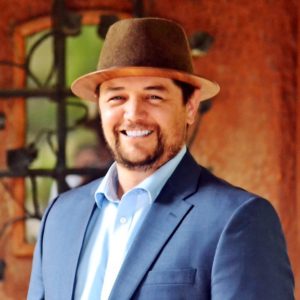Where Are Psychedelics Legal?
After many decades of widespread criminalization across the U.S., attitudes toward psychedelics are changing — and so are the laws.
Psychedelic drugs have been clinically proven to have some medical benefits, particularly for sufferers of post-traumatic stress disorder (PTSD), depression, anxiety and other mental health conditions. This has altered perceptions among the public and lawmakers in some cities and states and even, to some degree, at the federal level.
While selected psychedelics are legal only in two states across the country at present, many other states are considering legislation to make access to the medical benefits of psychedelics less restrictive.
Here’s what you need to know about psychedelic drug reform in the U.S…
Legalization of psychedelics in Colorado and Oregon
The legalization of psychedelics in the U.S. has been spearheaded by two states and multiple cities.
Denver, Colorado became the first city to decriminalize psilocybin in May 2019. The Natural Medicine Health Act (Proposition 122) followed in November 2022, which legalized the personal use, possession, growth, storage, and transport of psilocybin and several other psychedelic substances in the State of Colorado.
The Act created a regulatory framework under which adults aged 21 and older could receive “natural medicine services” provided by licensed healing centers. Proposition 122 decriminalizes and legalizes the possession and use of psilocybin and psilocin and authorizes more “natural medicines,” such as DMT and mescaline (except peyote) to be added after June 2026.
In November 2020, Oregon legalized therapy using psilocybin and decriminalized the personal possession of drugs with Measure 109 and Measure 110. In doing so, Oregon became the first state to both decriminalize psilocybin and legalize it for therapeutic use.
Measure 109 licensed and regulated the manufacturing, transportation, delivery, sale, and purchase of psilocybin products and the provision of psilocybin services; Measure 110 also reclassified the personal possession of small amounts of drugs as a civil violation with a $100 fine.
With psychedelics legalization in Oregon and Colorado, the path is open for healing centers and other permitted entities to secure psychedelics business licenses and offer therapies using psychedelics. Consequently, this is an exciting time for entrepreneurs, business owners, and clinicians who want to become involved in the development, commercialization and medical treatments involving psychedelics.
Besides these two states, more than 10 cities across the country have refused to wait for state reform and have adopted psychedelics reforms at a local government level, lowering the law enforcement priority level for possession of certain psychedelics. These include:
- Seattle and Port Townsend (WA)
- Arcata, Oakland and Santa Cruz (CA)
- Minneapolis (MN)
- Ann Arbor, Washtenaw County (MI)
- Somerville, Cambridge, Northampton, and Salem (MA)
- District of Columbia
Why are psychedelic drugs becoming more accepted?
Most of the positive medical news about psychedelics revolves around psilocybin and its use in alternative therapies for PTSD, depression, and anxiety.
For sufferers with these conditions and for whom other treatments have not worked, psilocybin-assisted therapies have brought some notable successes. Indeed, psilocybin-assisted therapy is considered a “breakthrough therapy” by many (the breakthrough therapy designation from the Food and Drug Administration expedites the development and review of drugs that are intended to treat serious health conditions).
As well as psilocybin, research has supported the medical benefits of other psychedelic substances like MDMA, Peyote, Mescaline, Ibogaine, LSD, Ayahuasca, and DMT. These substances are traditionally treated as “controlled” under The Controlled Substances Act of 1970.
The Drug Enforcement Agency (DEA) classified psychedelics, 3,4-methylenedioxy-methamphetamine (MDMA), and cannabis as “Schedule I substances” with “no currently accepted medical use” coupled with a high “potential for abuse”. So, conviction for possession has traditionally led to a criminal record and harsh penalties.
However, due to a swathe of positive research on psychedelics, attitudes are changing. Results from numerous animal-and human-based studies, including a large multi-site clinical trial with psilocybin for treatment-resistant depression and MDMA for PTSD, demonstrate that psychedelics are safe and have medical use when administered properly.
This has rapidly changed perceptions, bringing increasing acceptance and interest in these substances at many levels.
Psychedelic drug policy reform in the U.S.
More money is now being made available for clinical research on the medical benefits of psychedelics. Governments at local, state and even federal level are considering relaxing regulations surrounding many of these substances — particularly psilocybin.
For instance, Arizona recently passed legislation to appropriate $30 million from the state budget for psilocybin research grants and establish a psilocybin research advisory council.
In Connecticut, a law was passed in June 2021 to convene a working group to study the medical use of psilocybin. In Georgia, too, state law makers have proposed the formation of a committee to investigate psilocybin-assisted therapy.
Other states have also followed suit. As of January 2023, 25 states have considered 74 bills related to psychedelics over the past few years, with 10 of these bills already signed into law. Most address the decriminalization of certain psychedelic substances.
Even at the federal level, changes are afoot. For instance, In July, 2022, the U.S. House of Representatives adopted legislation to make grants available for research into the therapeutic application of 5-MeO-DMT for active-duty military personnel diagnosed with PTSD.
If the Breakthrough Therapies Act passes through Senate, several amendments would be made to the Controlled Substances Act and barriers to accessing controlled Schedule I and II substances for research and medical purposes would be lowered.
Additionally, the congressional Psychedelics Advancing Clinical Treatments (PACT) initiative was set up to investigate clinical research into the efficacy of psychedelics as therapeutics, support increased federal funding for psychedelic research, and educate Congress about psychedelics.
As the safety and efficacy of psychedelics become smore widely recognized, we can expect more states to follow in the footsteps of Colorado and Oregon in legalizing psychedelic substances like psilocybin. The momentum is increasing.
Watch this space if you’re interested in pursuing a business or healing center specializing in psychedelics-assisted therapies. The psychedelics business attorneys at Cannabis Law Solutions can help you with up-to-date information and the legal challenges of getting set up. Call 866-329-0729 for a consultation.
About Carlos Martinez, Esq.
Carlos Martinez is a leading attorney in cannabis law, serving as the president and founder of the Cannabis Law Section of the New Mexico Bar Association. He advises clients on regulatory compliance, licensing, and business structuring in the cannabis industry. With extensive experience navigating state and local cannabis laws, Carlos provides strategic legal counsel to businesses and entrepreneurs. He also plays an active role in shaping cannabis policy through his leadership in the Bar’s Cannabis Law Section.
How will our cannabis and psychedelic business services help you
Cannabis & psychedelics business entity formation
Whether you are looking to form a limited liability company (LLC) or a corporation, our experienced business lawyers can discuss the pros and cons of both and help you incorporate your business with the optimal structure to achieve your goals.
Cannabis & psychedelics business licenses
If you want to run a cannabis or psychedelics business, you will need a valid business license issued by your state authority as well as local permits. Eligibility criteria are likely to be stringent and we can help you navigate the often-complex license application process.
Cannabis & psychedelics corporate documentation
Whether you need to prepare for a license application, transfer of business ownership, change of corporate structure, transfer business location or another business process, we can help you identify and draft the documentation you need to operate legally in your state.
Cannabis & psychedelics administrative law
State authorities watch licensed and unlicensed cannabis and psychedelics businesses closely. If you violate regulations, you could face an administrative penalty. Our attorneys can provide representation or help you prepare for an administrative hearing, settlement conference or appeal.
Cannabis & psychedelics disputes and litigation
Whether you have a dispute with another business, a legal issue with one of your partners or a licensing or administrative issue, you may need legal assistance to help resolve it. We are adept at alternative dispute resolution methods as well as civil litigation.
Cannabis & psychedelics regulatory compliance
As the cannabis and psychedelics industries emerge in states around the U.S., they are more heavily regulated than most other industries. We can help your business navigate the red tape and plan to stay on the right side of the regulatory authorities in whichever state you are based.

